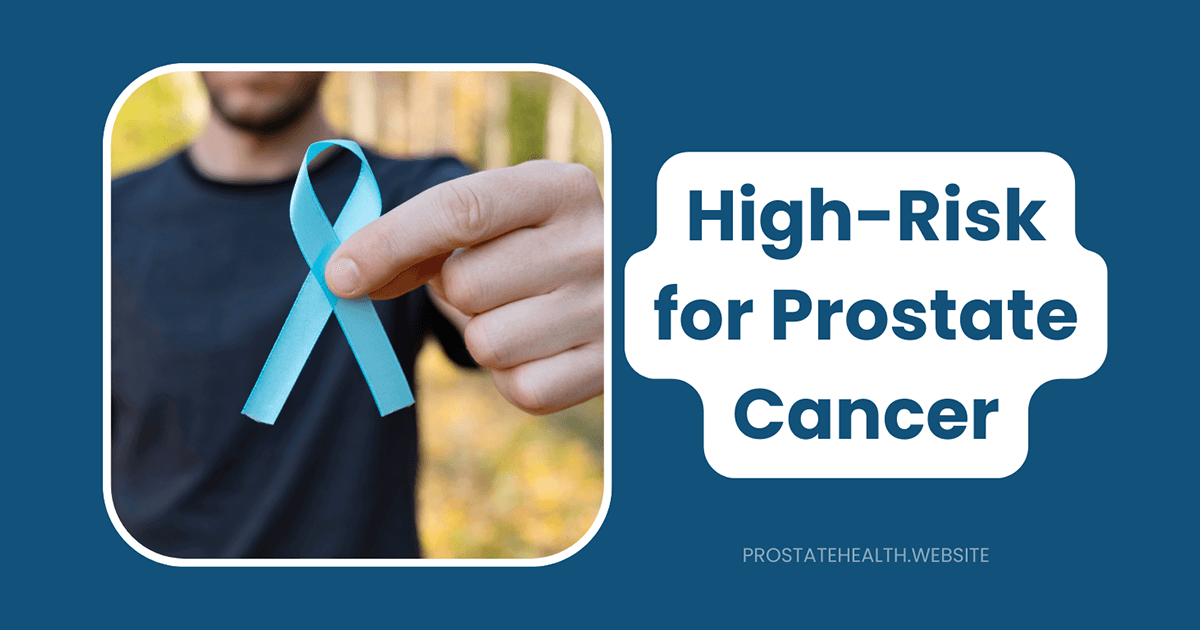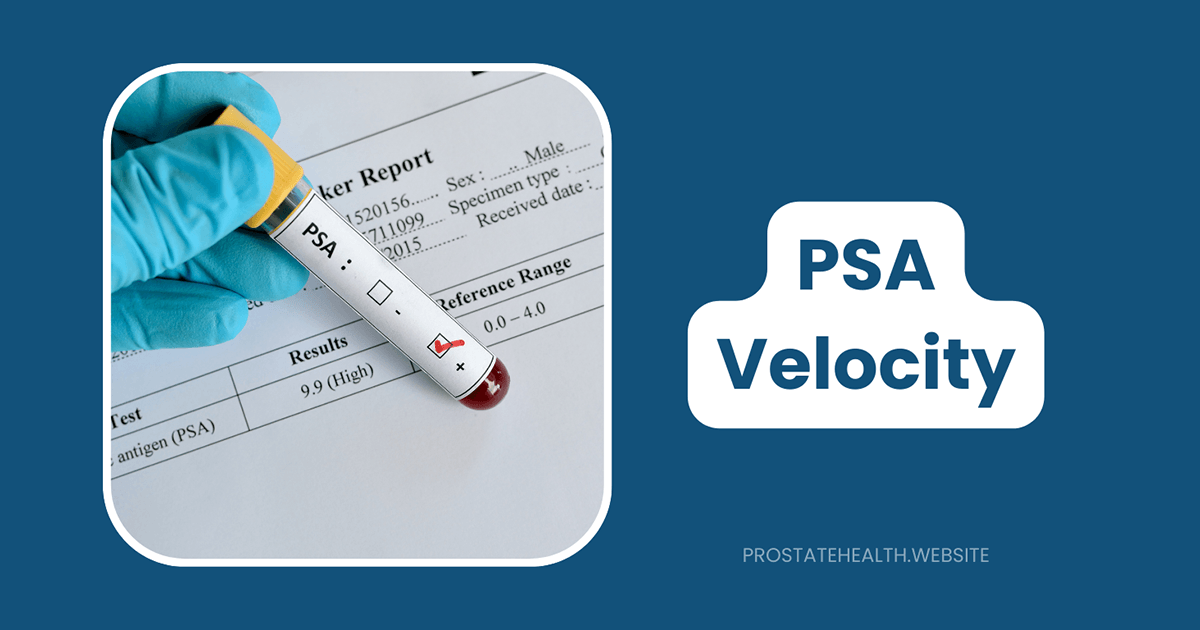Screening After 70: Is It Still Necessary?

At 72, my friend Richard faced a difficult decision. After religiously getting his PSA test every year since turning 50, his new doctor suggested he might want to stop. “The guidelines have changed,” the physician explained. “For men your age, the potential harms of screening may outweigh the benefits.”
Richard was confused and concerned. After two decades of vigilant monitoring, was he suddenly supposed to abandon a practice he’d been told was essential for his health? And if prostate cancer becomes more common with age, why would screening become less important as he got older?
This scenario plays out in doctors’ offices across the country every day. The question of whether to continue prostate cancer screening after age 70 represents one of the most nuanced and personalized decisions in men’s health. While major medical organizations have issued guidelines, the “right” answer depends on numerous individual factors that go beyond simply reaching a certain birthday.
In this comprehensive guide, we’ll explore the evidence, considerations, and personal factors that should inform this important healthcare decision.
What Do the Guidelines Actually Say?
Various medical organizations have issued recommendations about prostate cancer screening in older men. While there are some differences in their approaches, most suggest caution about routine screening after age 70:
U.S. Preventive Services Task Force (USPSTF)
- Recommendation: Against PSA-based screening for men 70 and older (Grade D recommendation)
- Rationale: Limited evidence of benefit and clear evidence of potential harm
- Key statement: “The USPSTF recommends against PSA-based screening for prostate cancer in men age 70 years and older.”
American Urological Association (AUA)
- Recommendation: Against routine screening in men over 70 or with less than 10-15 year life expectancy
- Rationale: Benefit-to-harm ratio becomes less favorable with age
- Key statement: “Routine PSA screening is not recommended in men over age 70 or any man with less than a 10 to 15 year life expectancy.”
American Cancer Society (ACS)
- Recommendation: Consider screening only if life expectancy is at least 10 years
- Rationale: Benefits of early detection decrease with shorter life expectancy
- Key statement: “Men who can expect to live at least 10 more years should have the opportunity to make an informed decision about whether to be screened.”
National Comprehensive Cancer Network (NCCN)
- Recommendation: Consider screening for very healthy men with 10+ year life expectancy
- Rationale: Some healthy older men may still benefit from early detection
- Key statement: “For men age 70-75, consider continuing screening only in very healthy men with little or no comorbidity.”
Dr. Otis Brawley, former Chief Medical Officer of the American Cancer Society, summarizes the consensus view: “The question isn’t really about age—it’s about life expectancy. A healthy 75-year-old might benefit from screening, while a 65-year-old with multiple serious health conditions probably won’t.”
The Science Behind Age-Based Recommendations
The guidelines against routine screening after 70 aren’t arbitrary—they’re based on several important scientific considerations:
1. The Natural History of Prostate Cancer
Prostate cancer typically grows slowly. A man diagnosed at 75 is more likely to die with prostate cancer than from it. Studies show:
- The median age at death from prostate cancer is 80 years
- 75% of prostate cancer deaths occur in men older than 75
- Many prostate cancers take 10+ years to become life-threatening
Dr. H. Ballentine Carter of Johns Hopkins explains: “Most prostate cancers diagnosed in elderly men would never cause symptoms or death during their remaining lifespan. This creates a situation where the potential for harm from screening and subsequent treatment often exceeds the potential benefit.”
2. Time to Benefit
Screening aims to detect cancer early enough to prevent death, but this benefit isn’t immediate:
- The European Randomized Study of Screening for Prostate Cancer (ERSPC) found mortality benefits began to appear 7-10 years after screening
- The number needed to screen (NNS) to prevent one prostate cancer death decreases with longer follow-up
- Men with less than 10-year life expectancy are unlikely to live long enough to benefit
3. Increasing Harms with Age
As men age, the potential harms of screening and subsequent treatment increase:
- Higher false-positive rates due to benign prostate enlargement
- Increased complications from biopsies and treatments
- Greater impact of side effects on quality of life
- Higher rates of overdiagnosis (finding cancers that would never cause harm)
The Problem of Overdiagnosis in Older Men
One of the primary concerns with screening older men is overdiagnosis—detecting cancers that would never have caused symptoms or death during the man’s lifetime.
Research indicates that overdiagnosis is particularly common in older men:
- Studies suggest 23-67% of screen-detected prostate cancers represent overdiagnosis
- The risk of overdiagnosis increases substantially after age 70
- For men aged 70-74 with PSA levels under 3 ng/mL, the lifetime risk of dying from prostate cancer is only 0.54%
- Men with PSA levels below 2 ng/mL at age 70 have just a 0.11% chance of dying from prostate cancer by age 85
Dr. Laurence Klotz, a pioneer in active surveillance for prostate cancer, notes: “The older the patient, the more likely a newly diagnosed prostate cancer represents overdiagnosis. For men in their 70s with low PSA levels, the vast majority of screen-detected cancers would never cause harm.”
Quality of Life Considerations
Beyond mortality statistics, quality of life is a crucial consideration for older men:
Potential Harms of Screening and Treatment
- Anxiety: Abnormal results and cancer diagnoses cause significant psychological distress
- Biopsy complications: Infection, bleeding, pain (more common in older men)
- Treatment side effects: Urinary incontinence (5-20%), erectile dysfunction (30-70%), bowel problems (5-10%)
- Recovery challenges: Older men often take longer to recover from treatments
A 2023 study in the New England Journal of Medicine found that while screening prevented prostate cancer deaths, the quality-adjusted life-years (QALYs) gained were 23% lower than unadjusted life-years due to treatment side effects impacting quality of life.
Dr. Stacy Loeb, a urologic oncologist at NYU Langone Health, emphasizes: “For older men, the impact of treatment side effects on quality of life can be substantial. Incontinence or sexual dysfunction may be particularly devastating for men trying to maintain independence and dignity in their later years.”
When Screening After 70 May Still Make Sense
Despite the general recommendations against routine screening after 70, there are situations where continued screening might be appropriate:
1. Excellent Overall Health and Longevity
Men with exceptional health and longevity in their family may have a life expectancy well beyond average:
- The average 70-year-old American man has a life expectancy of about 14 years
- The average 75-year-old has a life expectancy of about 11 years
- Some healthy 70-75 year olds may live 20+ more years
Dr. Matthew Cooperberg, a urologic oncologist at UCSF, notes: “A healthy, active 72-year-old with no significant medical problems and parents who lived into their 90s might reasonably continue screening, as his life expectancy could easily exceed 15 years.”
2. Higher Risk Profiles
Some men have risk factors that increase their chances of developing aggressive prostate cancer:
- African American men: 2x higher mortality rate from prostate cancer
- Family history: Multiple first-degree relatives with prostate cancer
- Known genetic mutations: BRCA1/2, HOXB13, or Lynch syndrome
- Previous concerning PSA patterns: Rapidly rising PSA or high PSA density
For these higher-risk men, the benefit-to-harm ratio of continued screening may be more favorable, even after age 70.
3. Previous Screening History
A man’s previous screening history provides valuable context:
- Men with consistently low PSA levels (under 1-2 ng/mL) throughout their 60s have very low risk of developing lethal prostate cancer
- Men with rising PSA levels or previous abnormal results may benefit from continued monitoring
- Those who’ve never been screened face different considerations than those with an established PSA history
A 2023 European study found that men aged 70-74 with PSA levels below 3.0 ng/mL or previous benign biopsies had very low risk of prostate cancer death and could safely discontinue screening.
A Framework for Decision-Making
Rather than a one-size-fits-all approach, consider this framework for making an informed decision about prostate cancer screening after 70:
Step 1: Assess Life Expectancy
Work with your healthcare provider to estimate your life expectancy based on:
- Overall health status
- Existing medical conditions
- Family history of longevity
- Functional status and frailty
- Validated life expectancy calculators
If your life expectancy is less than 10 years, screening likely offers little benefit.
Step 2: Consider Personal Risk Factors
Evaluate factors that might increase your risk of aggressive prostate cancer:
- African American heritage
- Family history of prostate cancer
- Known genetic mutations
- Previous PSA history and patterns
Higher-risk men may benefit from continued screening even at older ages.
Step 3: Understand Personal Values and Preferences
Reflect on what matters most to you:
- How do you feel about the possibility of missing a potentially treatable cancer?
- How concerned are you about potential side effects of diagnosis and treatment?
- How would you weigh quantity versus quality of life?
- What role does peace of mind play in your decision?
Dr. Peter Carroll, Chair of Urology at UCSF, emphasizes: “The decision to continue or stop screening should ultimately reflect the patient’s values and preferences after a thorough discussion of the potential benefits and harms.”
Step 4: Have a Detailed Conversation with Your Healthcare Provider
Discuss:
- Your specific health status and life expectancy
- Your PSA history and what it suggests about your risk
- The potential benefits and harms in your particular case
- Alternative approaches to monitoring prostate health
Alternatives to Traditional Screening
For men over 70 who decide against routine PSA screening, several alternative approaches exist:
1. Risk-Adapted Screening
Rather than stopping screening entirely, consider less frequent testing based on risk:
- Men with PSA <1 ng/mL might test every 3-4 years
- Those with PSA 1-3 ng/mL might test every 2 years
- Higher-risk men might continue annual testing
2. Symptom-Based Monitoring
Focus on monitoring for symptoms that might indicate prostate problems:
- Difficulty urinating or weak stream
- Increased frequency, especially at night
- Blood in urine or semen
- Pain or burning during urination
- Persistent pain in the lower back, hips, or pelvis
3. Baseline PSA with Selective Follow-up
Some experts suggest a baseline PSA at age 70-75:
- Men with PSA <3 ng/mL might safely discontinue screening
- Those with higher levels might continue monitoring
- This approach helps identify men at very low risk
Dr. E. David Crawford, a urologist at the University of California San Diego, suggests: “A baseline PSA test at age 70 can help stratify men into risk groups. Those with very low PSA levels can likely stop screening with confidence, while those with higher levels might benefit from continued monitoring.”
Real-World Perspectives
To provide a more complete picture, consider these perspectives from both patients and physicians:
Patient Perspective: Robert, 76
“After discussing it with my doctor, I decided to stop PSA testing at 75. My levels had always been below 1.0, and I have heart disease that’s more likely to affect my lifespan than prostate cancer. I feel comfortable with my decision, knowing the low likelihood of developing aggressive prostate cancer at this point.”
Patient Perspective: James, 73
“As an African American man with a brother who died from prostate cancer, I’ve chosen to continue annual screening despite being over 70. My doctor supports this decision given my risk factors and excellent overall health. For me, the peace of mind outweighs the potential downsides of screening.”
Physician Perspective: Dr. Sarah Johnson, Geriatrician
“I find that many of my older male patients have been getting PSA tests for decades without ever having a conversation about whether it’s still beneficial. When we discuss the evidence, many are surprised to learn that stopping screening might be a reasonable option. These conversations should happen regularly as men age and their health status changes.”
Physician Perspective: Dr. Michael Chen, Urologist
“The guidelines against routine screening after 70 are reasonable at a population level, but individual decisions require nuance. I’ve seen aggressive, lethal prostate cancers in otherwise healthy men in their early 70s that could have been detected earlier with screening. I’ve also seen many older men suffer significant side effects from treating cancers that likely would never have harmed them.”
The Future of Age-Based Screening Recommendations
The science of prostate cancer screening continues to evolve, with several developments potentially influencing future recommendations for older men:
More Sophisticated Risk Assessment
Emerging approaches may better identify which older men benefit from continued screening:
- Genetic risk scores to identify high-risk individuals
- Biomarker panels beyond PSA
- MRI-based screening to reduce unnecessary biopsies
- Artificial intelligence tools to predict aggressive disease
Improved Treatment Approaches
Advances in treatment may alter the harm-benefit calculation:
- Less invasive focal therapies with fewer side effects
- Better patient selection for active surveillance
- Enhanced surgical techniques with faster recovery
- Improved radiation approaches with fewer complications
Dr. William Catalona, a pioneering researcher in prostate cancer screening, predicts: “I believe we’re moving toward more personalized screening recommendations based on comprehensive risk assessment rather than arbitrary age cutoffs. This will allow us to continue screening those older men who truly benefit while sparing others from unnecessary testing and treatment.”
Conclusion: A Personal Decision
The decision to continue or stop prostate cancer screening after age 70 is deeply personal. While guidelines generally recommend against routine screening for all men over 70, individual circumstances vary widely.
The key is making an informed decision based on:
- Your overall health and life expectancy
- Your personal risk factors for prostate cancer
- Your previous screening history
- Your values and preferences
By having thoughtful conversations with your healthcare provider and considering these factors, you can make a decision that aligns with your health goals and personal values.
Remember that this decision isn’t permanent—as your health status changes, you can revisit the question of screening. The goal isn’t to follow guidelines blindly but to make choices that maximize your chances of both a long life and a good quality of life in your later years.
References:
- American Urological Association
- U.S. Preventive Services Task Force
- Keck Medicine of USC
- Harvard Health Publishing
- National Library of Medicine






